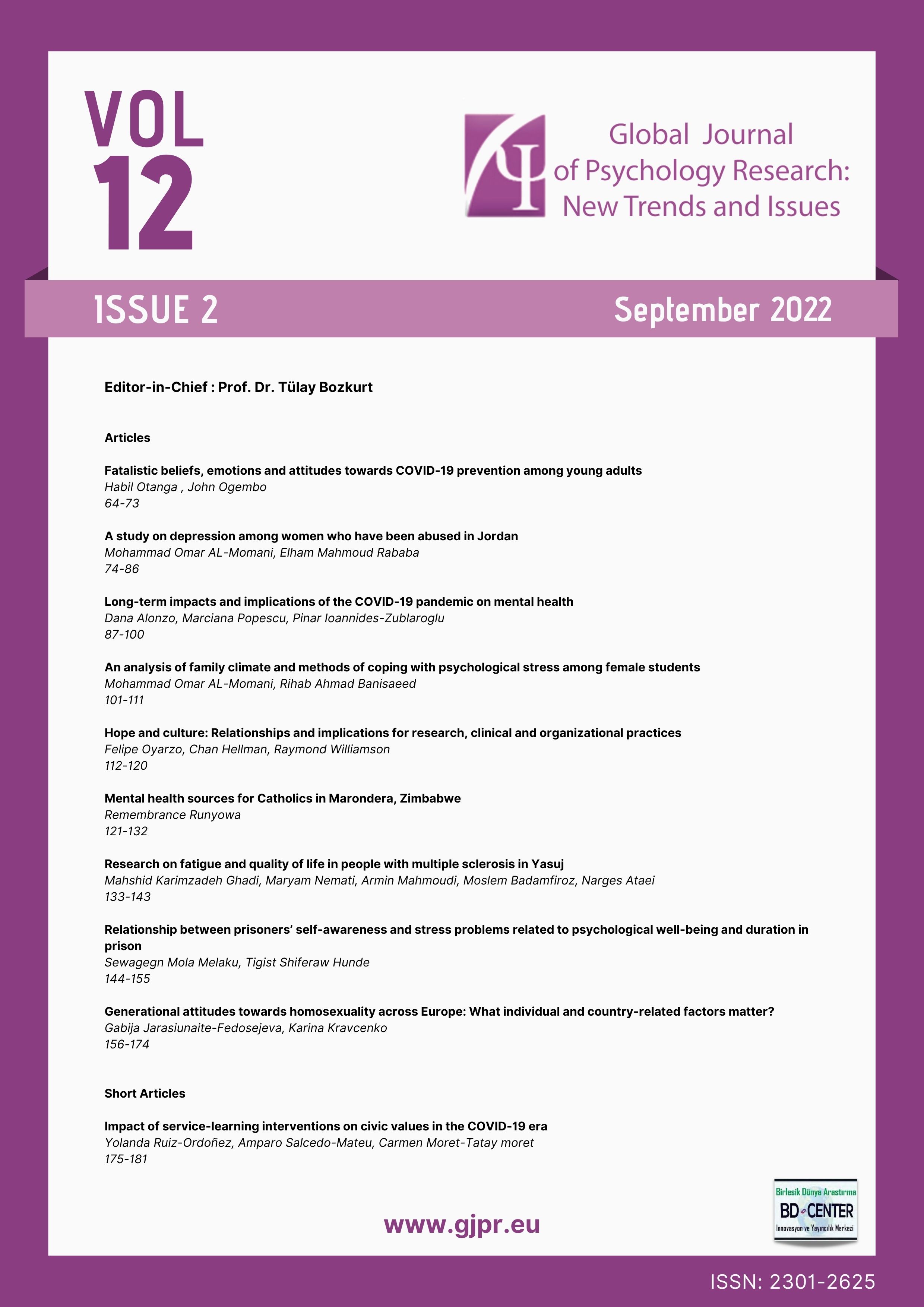Fatalistic beliefs, emotions and attitudes towards COVID-19 prevention among young adults
Main Article Content
Abstract
During the COVID-19 pandemic, health authorities required adherence to the individual- and group-level protocols with varying levels of success. The study, therefore, sought to identify pathways through which death anxiety, fatalism and fear of COVID-19 predict attitudes towards social distancing. A sample of 160 university students completed an online survey on associations between fatalistic beliefs, selected emotions and attitudes towards social distancing in Kenya. The estimated structural equation model for death anxiety and fear of COVID-19 explained the total variance in attitudes towards social distancing. Fatalism did not moderate associations but insignificantly played a dual role in adherence. Both death anxiety and fear of COVID-19 directly predicted attitudes towards social distancing. Finally, living in a zone labelled as ‘high risk’ predicted higher intentions not to socialise during the pandemic. We recommend that behaviour change interventions incorporate a psychological understanding of risk perception instead of focusing purely on medical approaches.
Keywords: Attitudes, COVID-19, death anxiety, fatalism, fear;
Downloads
Article Details

This work is licensed under a Creative Commons Attribution 4.0 International License.
